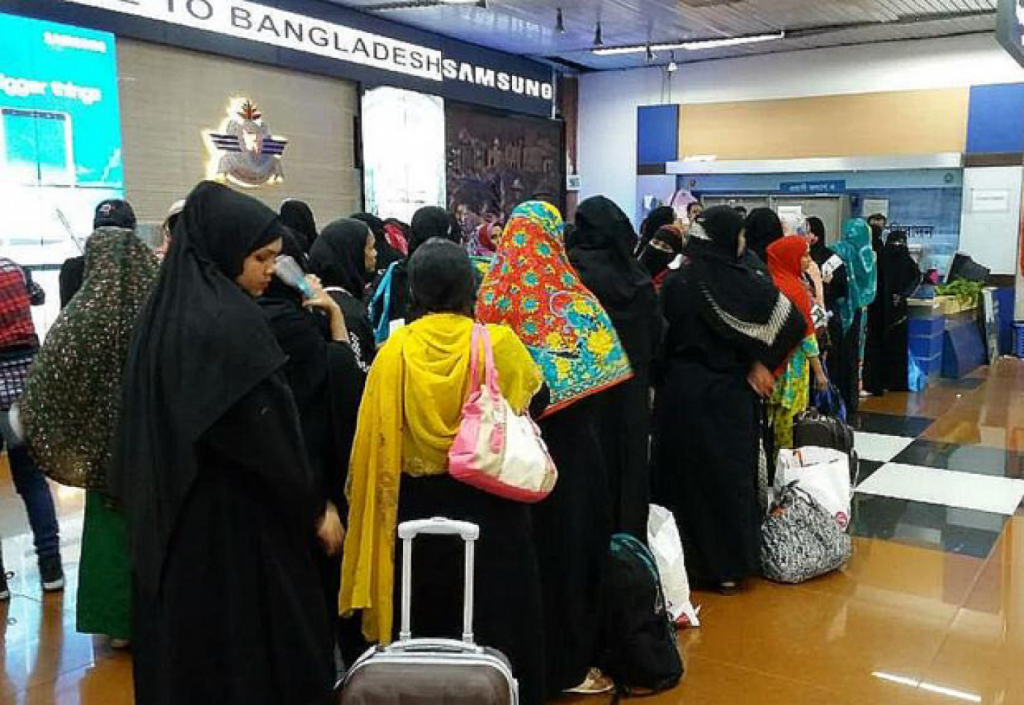
Bangladesh admitted for the first time recently that its female workers are being repatriated from Saudi Arabia because of sexual abuse. In a report submitted by Bangladesh’s Ministry of Expatriates’ Welfare and Overseas Employment to the parliamentary standing committee, the department admitted women had come back because of sexual and physical abuse.
This admission comes after the committee demanded answers on whether women are facing abuse while working in Saudi Arabia. The ministry responded by stating that testimony from 111 women who returned in August 2019 from the Gulf kingdom showed that 35 per cent of returnees had left because of sexual and physical abuse. The report noted 11 reasons why Bangladeshi female workers ran away from their employers. These include physical abuse, deprivation of food and holidays, denial of sick leave, and non-payment of salaries.
BRAC, an international development organised based in Bangladesh, that has been helping female domestic workers return home from Saudi Arabia, welcomed the Bangladeshi government’s findings. Shariful Hasan, programme head for BRAC migration, told Middle East Eye that for the last two years, his NGO had been raising the alarm about Bangladeshi female migrants returning from Saudi Arabia because of abuse. “Our work has shown that women are coming back from Saudi Arabia because of abuse, non-payment of salaries, work overload and denial of sick leave,” Hasan said.
Bangladesh began sending female workers to Saudi Arabia in 2015 after signing an agreement with the Gulf kingdom. The agreement was signed as other countries, including Indonesia, stopped sending female workers to Saudi Arabia due to reports of abuse.
In 2018, Middle East Eye revealed that Bangladesh was forced to set up safe houses inside Saudi Arabia to protect hundreds of women who face sexual and physical abuse inside the kingdom.
Rothna Begum, a senior woman’s researcher for Human Rights Watch who focuses on the Gulf, called on the Bangladeshi government to use this as an opportunity to “educate” its citizens of the dangers faced by women working in Saudi Arabia. “The fact that the Bangladeshi government denied that such was the extent of the abuse of the workers is highly problematic. It suggests that they do not want the Bangladeshi society to know about how bad the situation is,” Begum said. “But what the government should really do is ensure that Bangladeshis know about what is going on, but also what they are doing about it. Are they seeking to provide further protections?” “Are they putting pressure on the countries of a destination like Saudi Arabia to ensure that their workers are not treated in this manner and that they have the legal protections and redress available to ensure that they are able to escape where necessary and able to get the justice that they deserve.”

COMMENTS